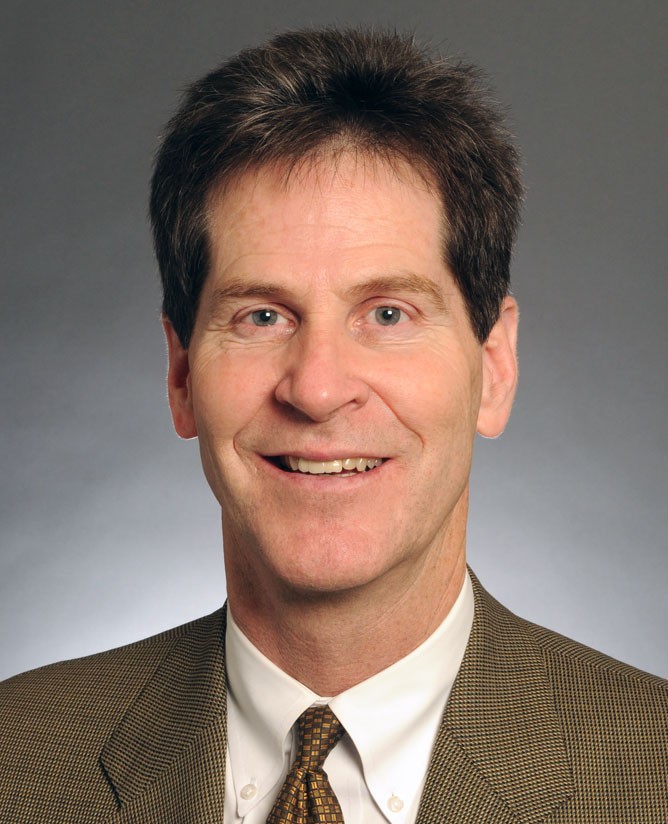Former state Sen. Larry Pogemiller has moved into a new position, but heâÄôs not facing new problems.
As director of the Minnesota Office of Higher Education, he inherits the continual struggle to control cost and improve quality, while helping to close the attainment gap between whites and minorities as well as between income levels.
On Thursday, Pogemiller delivered his first presentation before the HouseâÄôs higher education committee. His report coincided with the release of the 2011 Minnesota Measures âÄìâÄì a detailed look into the state of higher education in Minnesota and the issues it faces.
Pogemiller will continue to deal with affordability, student debt and the quality of the programs in Minnesota. He hopes to âÄúadvocate for improved results and greater access to higher education choices.âÄù
Legislators agreed the quality of education must continue to improve.
âÄúWe need to prepare our students better to be able to go into postsecondary education and while theyâÄôre in school, they have to get the services and things provided so that they can be successful,âÄù said Rep. Jeanne Poppe, DFL-Austin, a member of the committee. âÄúI donâÄôt know that thatâÄôs alarming or new, but itâÄôs just reality.âÄù
Reigning in costs
Several representatives said rising costs is one of the biggest challenges in higher education.
âÄúThe cost of higher education appears to be on a path that perhaps is not sustainable,âÄù Pogemiller said. âÄúWe need to support [University President Eric Kaler] to bend the cost curve of higher education so that it doesnâÄôt keep going up at this rapid rate.âÄù
According to the Minnesota Measures report, Minnesota resident undergraduate tuition and fees have increased faster than per capita personal income and inflation.
As costs have increased, so has the number of students taking out loans.
Pogemiller hopes to encourage some ways of immediate relief for rising tuition and debt. He would like to see âÄúbetter uses of technology and teaching models to help learners of this generation get an affordable, high quality, postsecondary experience.âÄù
With budget struggles across the state and nation, Pogemiller said, âÄúWe have to try and figure out a way to get increased investment in financial aid.âÄù
Although Pogemiller inherits a long-standing affordability problem that continues to grow, he said new leaders like Kaler and Minnesota State Colleges and Universities Chancellor Steven Rosenstone could bring change.
âÄúIf we can figure out how to collaboratively bend that cost structure and still enhance quality by properly aligning everybodyâÄôs programming,âÄù he said, âÄúI think thatâÄôll go a long way to arresting the trends.âÄù
The education gap
The new Minnesota Measures report also reflected the continued struggle of minority and low-income students.
According to the study, 82 percent of white 10th graders in Minnesota met or exceeded standards in reading in 2011, while only 47 percent of black students and 53 percent of Hispanic students did the same. A similar disparity was apparent in mathematics.
While 75 percent of all 10th graders met or exceeded standards in reading, only 57 percent of those eligible for free or reduced meals did the same.
The struggles were not limited to incoming college students. In 2010, for the Minnesota population aged 25 and older, 32 percent of white residents had a bachelorâÄôs degree or higher. Only 19 percent of black residents and 14 percent of Hispanic residents had obtained that level of education.
Testing new waters
Prior to taking over the stateâÄôs higher education office, Pogemiller served as a state senator representing the University area in District 59 for almost 30 years. His tenure included four years as Senate majority leader.
He stepped down in October after Dayton appointed him to his current post.
âÄúI think anybody in a new job after him serving so many years in the Legislature will have to adapt to different approaches âĦ working directly under the governor as an appointee versus somebody whoâÄôs elected,âÄù said Rep. Bob Dettmer, R-Forest Lake. âÄúThose are things heâÄôs going to have to adjust to and work his way through.âÄù
When asked about his position and power, Pogemiller reminded the committee that he has less influence on policy than state lawmakers or Dayton.
Many of the committee members were optimistic about PogemillerâÄôs leadership.
âÄúHe has in a very short time really gotten up to speed on what the role is of the department of higher education,âÄù said committee chairman Rep. Bud Nornes, R-Fergus Falls.
Internally, Pogemiller hopes to improve the quality of OHE research, which would help the office coordinate policy discussion about higher education.
Pogemiller hopes to leverage his experience and connections as a long-time legislator to bring about cooperation in increasingly partisan times.
âÄúA lot of policy making is relationship-oriented,âÄù Pogemiller said. âÄúThereâÄôs absolutely no reason for there to be a partisan divide on higher education policy.âÄù

















